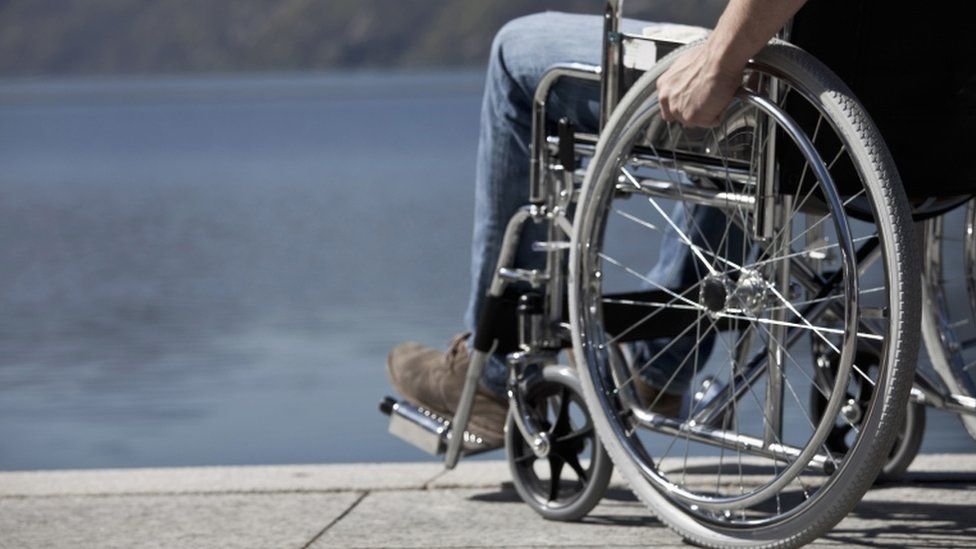Disability benefit change to affect half a million
- Published

More than half a million disabled people could lose out as a result of further changes over the next four years to welfare payments.
The formula the government uses to calculate the daily living component of Personal Independence Payment (PIP) for disabled people will change in January.
The government said 640,000 people could be affected by this by 2020.
It said it would save £1.2bn and ensure PIP was fairer, but disability charities criticised the move.
Recipients of PIP are assessed using a points system to determine what level of help they receive.
Claimants can get between £21.80 and £139.75 per week.
Review
An independent review found that the assessment criteria "may not be working as planned" and a subsequent review found a "significant number of people" were likely to be getting the benefit despite having minimal-to-no ongoing daily living extra costs, the Department for Work and Pensions said.
It said many of the aids and appliances for which points were awarded were likely already to be found in people's homes.
So the weight given to the use of aids and appliances in two of the 10 daily living activities - dressing and managing toilet needs - will be reduced from January.
The minister for disabled people, Justin Tomlinson, said: "Many people are eligible for a weekly award despite having minimal to no extra costs and judicial decisions have expanded the criteria for aids and appliances to include items we would expect people to have in their homes already.
"This new change will ensure that PIP is fairer and targets support at those who need it most."
The Department for Work and Pensions said that over the last six months there had been three legal judgements that had ruled a bed or chair could be classed as an aid or appliance if it helped someone get dressed or undressed.
'Ongoing extra costs'
But Disability Rights UK told the BBC that what it called the "cumulative affect" of cuts to both benefits and social care was eroding the capacity for some disabled people to live independently.
Mark Atkinson, chief executive at disability charity Scope, said the changes would make it harder for some disabled people to qualify for the benefit.
"It is crucial that the PIP assessment accurately reflects the extra costs disabled people face," he said.
"Buying specialist equipment, adaptations and other aids are significant and ongoing extra costs for many disabled people."
And Labour's shadow minister for disabled people Debbie Abrahams said that the Conservative Party was "yet again ignoring the views of disabled people, carers and experts in the field".
And Dame Anne Begg, former chairwoman of the work and pensions committee and a wheelchair user, felt the changes were part of a government tactic to reduce overall the number of disability benefit claimants.
She told the BBC Radio 4's Today programme: "They've started at the wrong end - rather than looking at what people needed and the money they should get to cover the extra costs of disability, they've decided they wanted half a million less claimants.
"They've obviously drawn up the original criteria and discovered they're not cutting out as many people as they anticipated.
She acknowledged cutting a weekly benefit to cover a sometimes one-off payment "sounded sensible" but added: "These things, like needing a seat to sit down in the shower, act as a proxy because that probably also means you're unable to do some household chores... none of which are measureable under the present system.
"They're tightening these descriptors to make sure fewer people get the benefit."
A second independent review of PIP is due by April 2017.
- Published3 February 2016
- Published20 June 2014
- Published8 April 2013